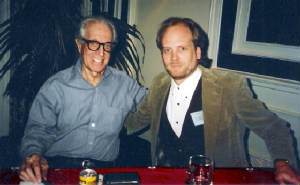|
I view substance use, abuse, addiction,
and recovery as learned behaviors -- issues of habit formation and lifestyle. Substance abuse and addictive behavior
are learned or conditioned habit patterns that are motivated and maintained by the complex
interaction of physical, psychological, social, and environmental factors. To say that substance abuse and addiction are "bad
(self-defeating) habits" does not imply that changing them is easy. Most people can attest to the fact that habits
can be very resistent to change. Changing any entrenched habit pattern, let alone addictive behavior, can be quite difficult
-- but it is doable. Recovery, learning to live comfortably without
the addictive behavior, involves learning to recognize and change the bio-psycho-social-environmental conditions that mantain
the addictive habit. Recovery is learned by practicing new ways of thinking, feeling, and behaving.
With commitment and persistence the new, more functional, ways of enjoying life and coping with problems become increasingly
automatic or habitual and develop into a more satisfying way of life. I do not subscribe to a medical disease model of
addiction that includes the spiritual “twelve-step” recovery programs based on Alcoholics Anonymous.I have no
investment in convincing clients they are suffering from a disease that renders them “powerless” to help
themselves and therefore in need of divine intervention. On the contrary, I see substance abuse and addiction as dysfunctional
or maladaptive behavior patterns that can be changed. I believe that, as human beings, clients are inherently capable of recognizing
their problems, learning from their mistakes, and taking appropriate corrective action. I support and encourage personal
responsibility, self-control, and self-discipline as the basic requirements for initiating and sustaining lifestyle change. I see addictive behavior as a human problem with
human solutions. I assume a neutral position on the issue of "spirituality." While I
do not attempt to engage clients in spiritual/religious solutions, my approach is not hostile towards a client's spiritual
or religious beliefs. If a client finds spiritual/religious practices helpful I encourage them to utilize these
resources in their daily lives. However, my clinical interactions with clients are focused on helping them find
and develop human solutions -- realistic and practical solutions grounded in the behavioral sciences and “common sense.” This
approach can be helpful to anyone; regardless of whether or not a person is religiously or spiritually oriented. The core of my theoretical perspective and counseling
technique is grounded in Rational Emotive Behavior Therapy (REBT). For additional information on REBT, please
see the info page at Albert Ellis Institute website, http://www.rebt.org/public/about-rebt.html, and click on the"Frequently Asked Questions" link.
(1997 photo of
Andy with Albert Ellis) 
|

